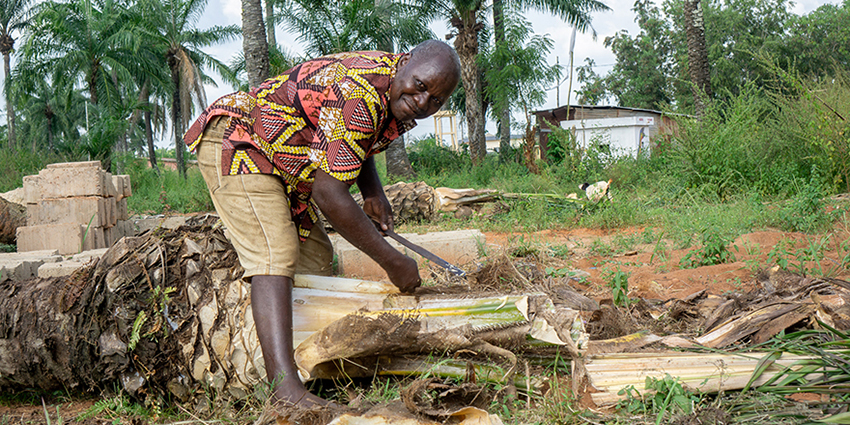The Foundation works for inclusive finance in Africa
By Mathilde Thonon and Flora Helard, In-Venture

© In venture
In Benin, more than half of the population lives in rural areas, far from the cities where most traditional banking services are concentrated. To address financial exclusion, microfinance institutions such as RENACA and ACFB have emerged across the country.
For many Beninese, it is difficult to both save and take out a loan. Lacking sufficient income and collateral, rural dwellers, as well as women and young workers, often find themselves deprived of financing that could help them start a business and contribute to Benin's economy. To address the exclusion of these populations, microfinance institutions such as RENACA and ACFB have emerged across the country.
The Grameen Crédit Agricole Foundation, a committed player in inclusive finance in rural areas, supports RENACA and ACFB in their mission to promote financial inclusion and entrepreneurship in Benin. Through its financial and technical support, the Foundation helps "restore hope to communities and lift populations out of a situation of vulnerability," explains Dieudonné Gnanvo, Director of RENACA. By offering savings, credit, and insurance products tailored to disadvantaged populations, microfinance institutions present an alternative to traditional banks and promote more inclusive and sustainable finance.
RENACA and ACFB, partners committed to the field
Founded in 2008, the National Network of Village and Self-Managed Credit Unions (RENACA) is one of the most active microfinance institutions in Benin. Since 2012, the Foundation has supported this mutual network, which has nearly 145,000 member clients, including 60% women. Present in 6 of the country's 12 regions, RENACA offers its clients individual and group loans and non-financial services such as training in personal and professional financial management. RENACA's social performance is an indicator of success, just as much as its financial performance. The institution places great importance on its customer relations and regularly monitors its contractors to ensure their gradual and sustainable exit from economic insecurity.
The Association of Grassroots Financing Funds (ACFB) emerged from a research and action NGO promoting development agriculture, which originally provided subsidies to women to help them start businesses. To sustain its impact, the NGO opted for microfinance over subsidies and gave way to the ACFB in 2004, which is now present in 44 of the country's 117 municipalities. Since 2016, the Foundation has supported the ACFB in its mission to promote women's entrepreneurship and the economic inclusion of local communities.
Modeled after Nobel Peace Prize winner Muhammad Yunus's Grameen Bank, ACFB specializes in group lending. This allows people without individual guarantees to borrow, since in exchange, the group must commit to repaying if one of its members is unable to do so. The mechanism thus draws its effectiveness from the bonds of trust and solidarity that exist between members, which encourage repayment: ACFB currently has a repayment rate of around 1,00%.
Promoting inclusive finance in Africa: a priority
The trusting and close relationships with clients, fostered by the establishment of numerous branches throughout the country, are also at the root of the success of ACFB and RENACA, which together have helped hundreds of thousands of Beninese secure a better future. With the support of the Grameen Crédit Agricole Foundation, the two microfinance institutions have enabled the development of numerous sustainable economic activities in sectors such as agriculture, access to water, renewable energy, crafts, and education in rural areas.
The Foundation works to develop inclusive finance beyond Benin's borders. Today, it focuses 35% of its commitments in sub-Saharan Africa and is present in a dozen African countries. Africa will continue to be a priority for the Foundation, which will focus 45% of its commitments on the continent by 2022.



Leave a Reply
Want to join the discussion?Feel free to contribute!